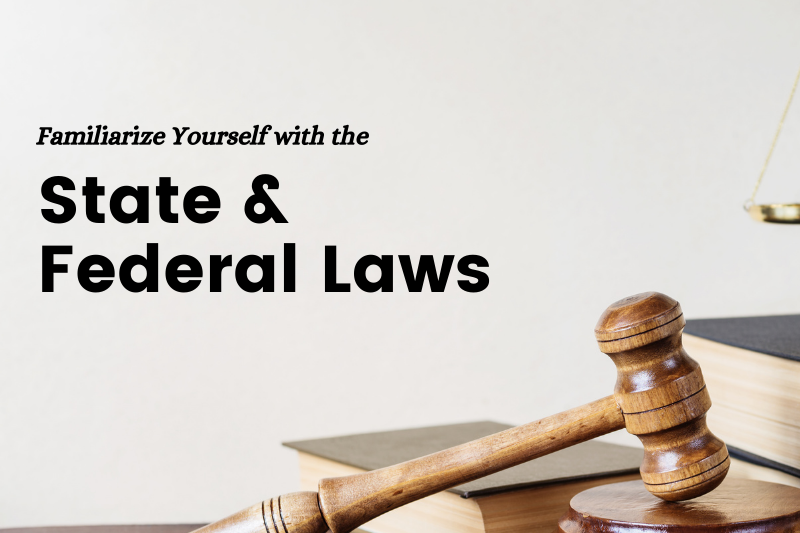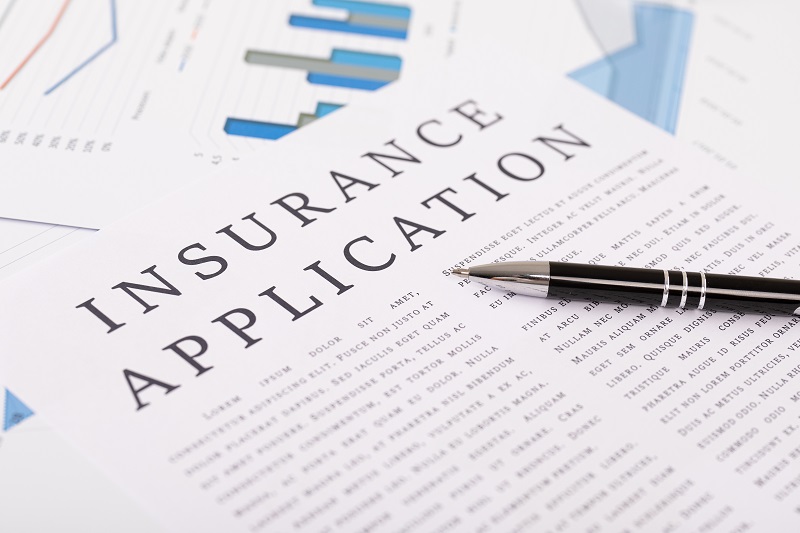Before launching your credit repair business in Maryland, it’s crucial to have a firm grasp of the laws and regulations governing the industry. This article will walk you through everything you need to know to start your business on the right foot.
Choose a Business Name

Select a unique and meaningful name for your credit repair business that reflects your services and is easy for potential clients to remember.
Uniqueness:
Your chosen business name must be unique and distinguishable from other existing business names registered in Maryland. You can conduct a name search through the Maryland State Department of Assessments and Taxation (SDAT) Business Entity Search database to check the availability of your desired business name.
Business Entity Designator:
If you plan to register your credit repair business as an LLC or a corporation, you need to include an appropriate business entity designator at the end of your business name. For an LLC, you can use “Limited Liability Company,” “LLC,” or “L.L.C.” For a corporation, use “Incorporated,” “Corporation,” “Inc.,” or “Corp.”nar dapibus leo.
Avoid Restricted Words:
Your business name should not include any words that suggest affiliation with a government agency or that imply a regulated profession or activity without proper authorization. Additionally, avoid using misleading or offensive language.
Clear and Descriptive:
Choose a business name that clearly represents your credit repair services and helps potential clients understand the nature of your business. A descriptive name can also make your marketing efforts more effective.
Easy to Pronounce and Spell:
Select a business name that is easy to pronounce, spell, and remember. This will make it easier for clients to find and refer your credit repair business.
Register Your Business

Determine the appropriate business structure for your credit repair company, such as a sole proprietorship, partnership, limited liability company (LLC), or corporation. Each structure has its own legal and tax implications, so consult with a legal or financial professional if you’re unsure about which structure is best for your business.
Choose a Business Structure:
Determine the appropriate business structure (e.g., sole proprietorship, partnership, LLC, or corporation) and register your business with the Maryland State Department of Assessments and Taxation (SDAT). You can register online or by submitting the appropriate forms via mail.
Choose a Business Name:
Select a unique and meaningful name for your credit repair business that complies with Maryland’s naming requirements.
Check Name Availability:
Conduct a name search through the Maryland State Department of Assessments and Taxation (SDAT) Business Entity Search database to ensure your desired business name is available and not already in use by another entity in the state.
Register Your Business with SDAT:
Depending on your chosen business structure, you’ll need to file the appropriate formation documents with SDAT:
- For an LLC: File Articles of Organization.
- For a corporation: File Articles of Incorporation.
- For a limited partnership: File a Certificate of Limited Partnership.
You can submit the required documents online through the Maryland Business Express portal or via mail. Be prepared to pay the necessary filing fees.
Additionally, Contact the Commissioner of Financial Regulation licensing staff by phone at 410- 230-6155 or 888-784-0136 for further assistance regarding Maryland-specific requirements.
Obtain an Employer Identification Number (EIN)

Apply for an EIN from the Internal Revenue Service (IRS). This federal tax identification number is necessary for most businesses, especially if you plan to have employees or open a business bank account.
Verify Eligibility:
Ensure that you meet the eligibility requirements to apply for an EIN. You must have a valid Taxpayer Identification Number (such as a Social Security Number) and be located within the United States or its territories.
Prepare Necessary Information:
Before applying, gather the required information, such as your legal business name, mailing address, and business structure. You’ll also need details about the responsible party, which is usually the business owner or a principal officer, as well as their Social Security Number or Individual Taxpayer Identification Number.
Apply Online:
The easiest and fastest way to apply for an EIN is through the IRS website’s online application system. Visit the IRS EIN Assistant and follow the step-by-step instructions. The online application is available Monday through Friday, 7 a.m. to 10 p.m. Eastern Time.
Receive Your EIN:
Once you’ve completed the application, you’ll receive your EIN instantly. Be sure to save or print a copy of the confirmation notice for your records.
Alternatively, you can apply for an EIN by fax or mail:
Fax:
Complete Form SS-4, “Application for Employer Identification Number,” and fax it to (855) 641-6935. The IRS will usually process your application and send you your EIN within four business days.
Mail:
Complete Form SS-4 and mail it to the following address: Internal Revenue Service Attn: EIN Operation Cincinnati, OH 45999
Applying by mail may take up to four weeks for the IRS to process your application and send your EIN.
Obtain Required Licenses and Permits

While there are no specific licenses or permits required solely for credit repair businesses in Maryland, you may need to obtain a general business license or other local permits, depending on your location and business structure. Check with your local government offices for any requirements.
Check Local Requirements:
Contact your local government offices, such as your city or county clerk’s office, to determine if there are any licenses or permits required to operate a credit repair business in your area. Local requirements can vary, so it’s important to verify what applies to your specific location.
General Business License:
Many jurisdictions in Maryland require businesses to obtain a general business license. The application process and fees may vary depending on the jurisdiction. Contact your local government office to obtain the necessary forms and submit them as instructed.
Zoning and Land Use Permits:
If you plan to operate your credit repair business from a physical location, you may need to obtain zoning and land use permits. Check with your local zoning office to ensure your business location complies with local zoning regulations and to apply for any required permits.
Professional and Occupational Licenses:
Although credit repair businesses in Maryland do not require a specific professional or occupational license, you should verify with your local government office to ensure you meet any other licensing requirements that may apply to your business.
Employer Requirements:
If you plan to hire employees, you may need to obtain additional permits or licenses, such as registering for employer withholding tax or obtaining workers’ compensation insurance. Check with the Maryland Department of Labor and the Maryland Comptroller’s Office for more information on employer requirements.
Sales and Use Tax License:
If your credit repair business sells products or certain services subject to sales tax, you’ll need to obtain a sales and use tax license from the Maryland Comptroller’s Office. You can register online through their website.
Comply with the Maryland Credit Services Businesses Act (MCSBA)

In Maryland, credit repair businesses are regulated under the MCSBA.
The Maryland Credit Services Businesses Act (MCSBA) is a set of state regulations that govern credit repair and credit services businesses operating in Maryland. The purpose of the MCSBA is to protect consumers from deceptive and unfair practices in the credit repair industry. The Act establishes specific guidelines and requirements for credit repair businesses to ensure that they operate fairly and transparently.
Some key provisions of the MCSBA include:
Prohibition of Advance Fees:
Credit repair businesses are not allowed to charge or receive any money from a consumer before completing the credit repair services agreed upon in the contract.
Written Contract Requirement:
A written contract must be provided to the consumer, clearly outlining the services to be provided, the total cost of the services, a detailed description of the consumer’s right to cancel, and a conspicuous statement of the consumer’s three-day right to cancel without penalty.
Three-Day Right to Cancel:
Consumers have the right to cancel the contract within three business days after signing without incurring any penalties or obligations.
Disclosures:
The credit repair company must provide consumers with specific disclosures, such as notifying them of their right to dispute information on their credit report, the fact that accurate information cannot be removed from their credit report, and that the consumer can perform any of the services offered by the credit repair company without hiring a professional.
Advertising and Marketing Materials:
The MCSBA requires that all advertising and marketing materials used by credit repair businesses do not contain any false, misleading, or deceptive statements.
Recordkeeping:
Credit repair businesses are required to maintain detailed records of their transactions with consumers for a certain period, as specified by the MCSBA.
Comply with Federal Laws

Be familiar with and comply with federal regulations, such as the Credit Repair Organizations Act (CROA) and the Fair Credit Reporting Act (FCRA), which govern credit repair services.
Credit Repair Organizations Act (CROA):
The CROA is a federal law specifically designed to regulate credit repair organizations and protect consumers from deceptive practices.
Some key provisions of the CROA include:
Prohibition of Advance Fees:
Credit repair organizations cannot charge or collect fees from a consumer before completing the promised services.
Written Contract Requirement:
A written contract must be provided to the consumer, clearly outlining the services to be provided, the total cost of the services, the duration of the services, and a statement of the consumer’s right to cancel.
Right to Cancel:
Consumers have the right to cancel the contract within three business days after signing without incurring any penalties or obligations.
Prohibition of False Advertising:
Credit repair organizations cannot make false or misleading claims about their services, such as guaranteeing specific results or promising to remove accurate information from a consumer’s credit report.
Fair Credit Reporting Act (FCRA):
The FCRA is a federal law that governs the collection, dissemination, and use of consumer information, including credit reporting. Credit repair businesses must adhere to the FCRA when assisting clients with credit report disputes.
Key provisions of the FCRA that affect credit repair businesses include:
Consumer Rights:
The FCRA grants consumers certain rights, such as the right to access their credit reports, dispute inaccurate information, and request the removal of outdated negative information.
Furnishers of Information:
Credit repair businesses must ensure they are using accurate, complete, and up-to-date information when submitting disputes on behalf of clients.
Reporting Agencies:
The FCRA imposes certain obligations on credit reporting agencies, such as investigating disputes and correcting or removing inaccurate information.
In addition to the CROA and FCRA, credit repair businesses must also comply with other federal laws and regulations, such as the Federal Trade Commission (FTC) Act and the Truth in Lending Act (TILA), as well as state laws, such as the Maryland Credit Services Businesses Act (MCSBA).
Surety Bond

The principal (the party required to obtain the bond), the obligee (the party requiring the bond, often a government agency), and the surety (the party issuing the bond, typically an insurance company). The bond guarantees that the principal will fulfill their contractual obligations, adhere to specific regulations, or pay required taxes or fees.
The Maryland Credit Services Business Licensee Surety Bond is required by the Commissioner of Financial Regulation of the State of Maryland. In order to become licensed as a Credit Services Business, all applicants must file a $50,000 bond with their application.
Open a Business Bank Account

Opening a dedicated business bank account helps separate your personal and business finances, making it easier to manage your company’s financial transactions and meet legal requirements.
Choose a Bank:
Research and compare different banks to find the one that best meets your business needs. Look for a bank that offers the services you need, such as low fees, online banking, and a convenient location.
Gather Necessary Documents:
Banks typically require specific documents to open a business account, such as your business registration paperwork, your EIN, your business license or permits, and your personal identification.
Schedule an Appointment:
Call or visit the bank to schedule an appointment with a representative. Be sure to let them know that you are interested in opening a business account for your credit repair business.
Complete the Application:
The bank representative will provide you with a business account application. Complete the application, providing accurate and truthful information about your business and its operations.
Provide Necessary Documentation:
Submit the required documentation, such as your business registration paperwork, EIN, and personal identification. The bank may also require additional documentation depending on your business structure and needs.
Fund the Account:
Once your application is approved, deposit the initial funds required to open the account.
Receive Account Information:
The bank will provide you with information about your new business account, such as the account number, online banking information, and any debit cards or checks associated with the account.
Obtain Business Insurance

Consider obtaining appropriate business insurance, such as general liability insurance or professional liability insurance, to protect your credit repair business from potential risks and liabilities.
General Liability Insurance:
This type of insurance protects your business from claims of bodily injury, property damage, and advertising injury. It can help cover legal fees, medical expenses, and damages awarded in a lawsuit.
Professional Liability Insurance:
Also known as errors and omissions insurance, this coverage protects your business from claims of professional negligence or errors in the services you provide. It can help cover legal fees, damages, and settlements.
Cyber Liability Insurance:
As a credit repair business, you handle sensitive personal and financial information. Cyber liability insurance can help protect your business from data breaches, cyber-attacks, and other cyber threats.
Workers' Compensation Insurance:
If you have employees, workers’ compensation insurance is required by law in Maryland. This coverage provides benefits to employees who suffer work-related injuries or illnesses.
Develop a Business Plan

Develop a Business Plan: Create a detailed business plan outlining your business goals, target market, services, pricing, marketing strategies, and financial projections.
Executive Summary:
This section provides an overview of your credit repair business, including your mission statement, services offered, target market, and goals.
Business Description:
Describe your business in more detail, including your business structure, location, management team, and staff.
Market Analysis:
Research your target market, including their demographics, credit repair needs, and behavior patterns. Analyze the competition and identify your unique selling proposition.
Services Offered:
Outline the services you will offer, including credit report analysis, dispute resolution, and credit counseling.
Marketing and Sales Strategies:
Describe how you will market and promote your business, including advertising, social media, and partnerships. Outline your sales process and how you will acquire and retain customers.
Operations Plan:
Describe how your business will operate, including processes for delivering your services, hiring and training staff, managing finances, and handling legal and regulatory compliance.
Financial Projections:
Project your revenue and expenses for the next few years, including start-up costs, operating costs, and potential revenue streams. Include cash flow statements, balance sheets, and income statements.
Appendix:
Include any additional information that supports your business plan, such as resumes of key staff members, market research data, and legal or regulatory compliance documentation.
It’s important to regularly review and update your business plan to reflect changes in your business or the market. A well-written and detailed business plan can also be useful when seeking funding or investors.
Network and Market Your Business

Use various online and offline marketing strategies to promote your credit repair business, such as social media, content marketing, local advertising, and attending networking events.
Establish a Strong Online Presence:
Develop a professional website that showcases your services, testimonials, and contact information. Use social media platforms like Facebook, Twitter, and LinkedIn to connect with potential clients and share relevant content.
Leverage Referrals:
Encourage satisfied customers to refer their friends and family to your business. Offer incentives for referrals, such as discounts on services or gift cards.
Attend Networking Events:
Join local business organizations and attend networking events to meet other professionals and potential clients. Bring business cards and be prepared to pitch your services.
Partner with Other Professionals:
Establish relationships with professionals in related fields, such as real estate agents, mortgage brokers, and financial advisors. Offer to provide credit repair services to their clients in exchange for referrals.
Offer Educational Resources:
Create educational resources, such as blog posts, e-books, and webinars, to help consumers understand credit repair and financial management. Share these resources on your website and social media channels.
Advertise Strategically:
Consider targeted online advertising, such as Google AdWords or Facebook ads, to reach your target audience. Use direct mail or print advertising in local publications to reach a broader audience.
Ready to start your credit repair business in Maryland?
Make sure you are informed and compliant with the latest state laws.
Click now to learn more.
In conclusion, starting a credit repair business in Maryland requires careful attention to legal requirements and regulations. By following the laws and guidelines set forth by the state, you can build a successful credit repair business that helps consumers achieve financial stability and success.
Bonus: Now that you have read this article, why not take your new skill and start your own credit business helping others? We have free training that can help you do just that.

